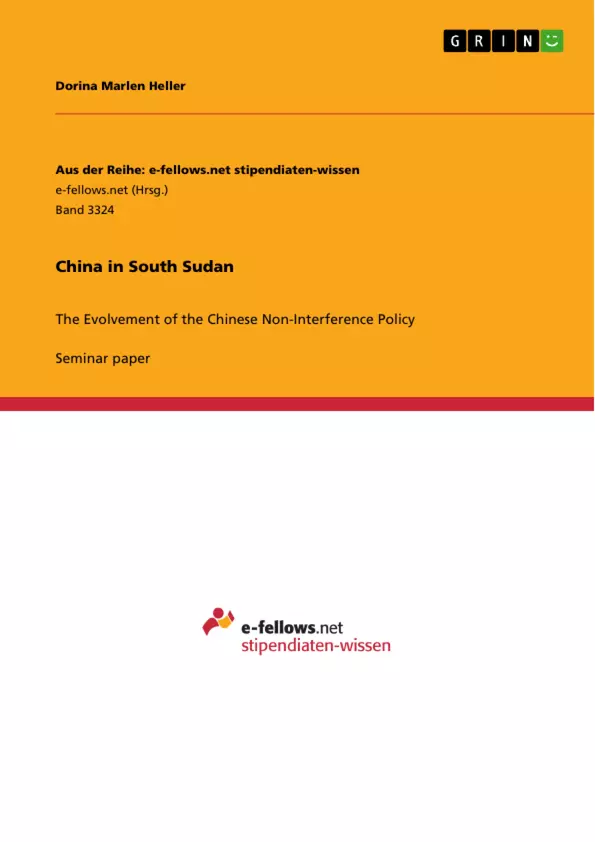In this paper, China’s history of evolving involvement in Sudan and South Sudan and its role as a stakeholder throughout periods of conflict and civil war will be explored. China’s foreign policy actions in South Sudan, its motivations and limitations will also be analysed. In conclusion, it will be attempted to situate the case of South Sudan in China’s wider foreign policy.
China’s engagement in Africa is often harshly criticised by Western media and seen as exploitative and neo-colonialist. Undoubtedly the impact of Chinese involvement in Africa has been both positive (investments in infrastructure, new jobs, economic growth) and negative (legitimising autocratic regimes, monopolisation of resources, unequal partnerships). South Sudan is a particularly interesting case study because it has been used as a “testing ground for China’s proactive diplomacy”.
South Sudan is simultaneously the world’s youngest and most fragile state. Most Western countries consider Sudan and by extension South Sudan to be – “an aid recipient, an abuser of human rights, and a former colony of Egypt and Great Britain.”. However South Sudan is rich in terms of its oil reserves. This has both been a blessing and a curse for the young nation: On the one hand almost all of the country’s revenues stem from oil production, on the other hand it meant that South Sudan invested disproportionally in the securement of its oil resources, but not in education, public health or infrastructure. This in turn has led to an unparalleled dependence on oil: “There is no oil-exporting country in the world so dependent on this one commodity for its revenue” (Medani 2013:28). Oil is also what originally brought China to Sudan and then South Sudan. The economical dimension can’t be separated from the political here, in South Sudan we find a “striking coexistence of actual political and aspirational economic relations” (Large 2014:41).
This interwovenness of political and economic interests has proven to be an increasing challenge for China’s traditional policy of non-interference (bùgānshè zhèngcè不干涉政策). In the last few years “South Sudan has been the site of an evolving, experimental and more proactive Chinese political and security engagement.”.
Table of Contents
- Introduction
- China and the Two Sudans, a Complex Triangle
- Early Investments, Darfur and a Peace Deal
- Independence, Civil War and UNMISS
- Non-Interference Revisited
- The Challenge of Non-Interference
- Balancing Self-Interest and Global Responsibility: Non-Interference in Practice
- China's Motivations and Limitations in South Sudan
- Conclusion
Objectives and Key Themes
This paper aims to analyze China's evolving involvement in Sudan and South Sudan, focusing on the country's non-interference policy and its application in the context of the South Sudanese civil war. The paper examines China's historical engagement in the region, its motivations for involvement, and the limitations it faces.
- China's non-interference policy and its evolution
- The complex relationship between China, Sudan, and South Sudan
- The role of oil in China's involvement
- The challenges of balancing self-interest with global responsibility
- China's political and security engagement in South Sudan
Chapter Summaries
- Introduction: This chapter provides a general overview of China's engagement in Africa, highlighting the controversy surrounding its involvement and the complexities of African perspectives. It introduces South Sudan as a case study for China's proactive diplomacy and discusses the country's fragile state and dependence on oil.
- China and the Two Sudans, a Complex Triangle: This chapter traces China's evolving relationship with Sudan and South Sudan, focusing on early investments, the Darfur conflict, and China's role in peace deals. It explores the reasons behind China's involvement, including oil resources and political ties.
- Non-Interference Revisited: This chapter examines the concept of non-interference in Chinese foreign policy, its historical development, and its implementation in practice. It discusses the challenges posed by China's involvement in South Sudan and the balancing act between self-interest and global responsibility.
- China's Motivations and Limitations in South Sudan: This chapter analyzes China's motivations for engaging in South Sudan, including its economic and political interests. It also explores the limitations China faces in its involvement, such as the complex political situation and the challenges of promoting peace and stability.
Keywords
The paper focuses on key concepts such as China's non-interference policy, South Sudan's political instability, oil resources, China's foreign policy motivations, and the challenges of balancing self-interest with global responsibility. The study also touches upon the concept of 'flexible intervention' as a possible shift in China's foreign policy approach.
- Quote paper
- Dorina Marlen Heller (Author), 2018, China in South Sudan, Munich, GRIN Verlag, https://www.hausarbeiten.de/document/512982


